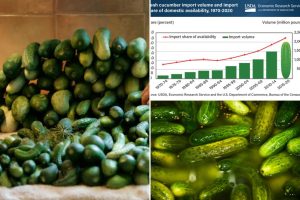As American companies and public policies work towards reducing carbon dioxide emissions, many are turning to carbon offsets to help achieve “net-zero emissions.” One common method is using nature-based solutions, such as sequestering carbon in forests, to combat climate change. However, a new study suggests that hurricanes could pose a risk to these efforts. Offset programs involve investments in projects that cut carbon emissions or store carbon, like solar energy or forest preservation. New England is heavily forested, with Maine, New Hampshire, and Vermont having significant forest cover.
In the California carbon market, a portion of carbon offset projects is reserved for catastrophic risks like hurricanes and other storm events. Wildfires, a separate risk category, can also deplete forests that store carbon, known as “carbon stocks.” The study found that a single hurricane could wipe out 5% to 10% of total aboveground forest carbon in New England, primarily through tree damage. This research highlights the need for caution when relying on forest carbon as a climate solution.
Despite New England experiencing few severe hurricanes in recent years, they remain a significant force in shaping long-term ecosystem change. As climate change continues to warm the planet and sea surface temperatures rise, hurricanes could become stronger and pose a greater risk to heavily forested regions like the Northeast. The research team examined the impact of the ten most powerful hurricanes to hit New England in the past century, mapping trees and hurricanes to simulate potential future storm impacts.
A projected increase in hurricane wind speeds could lead to a significant rise in high-severity impacts, causing widespread tree death. While forest carbon is seen as a way to sequester carbon from the atmosphere, hurricanes have the potential to release stored carbon back into the air. The study found that it takes years for the carbon released from downed trees after a hurricane to be emitted, with one storm equivalent to the 10-year carbon sequestration of New England’s forests. This research underscores the importance of considering future hurricanes in forest carbon mitigation strategies.
As forest carbon stocks are increasingly utilized as a climate solution, it is crucial to evaluate their longevity and associated risks to ensure the effectiveness of these efforts. “If forest carbon stocks are going to continue to be used as a nature-based climate solution, we have to be critical about evaluating its longevity and risks, to make sure that we’re doing something that actually has an impact,” says lead author Shersingh Joseph Tumber-Dávila. As the climate continues to change, the study highlights the importance of understanding the impacts of hurricanes on forest carbon storage and climate change mitigation efforts in the future.





